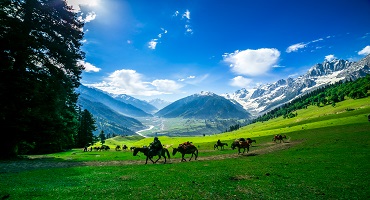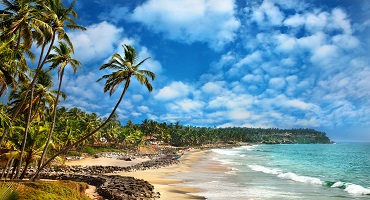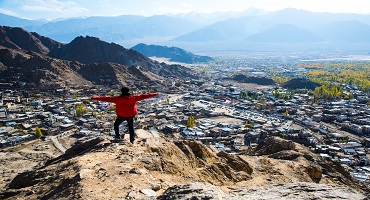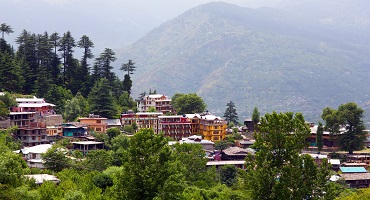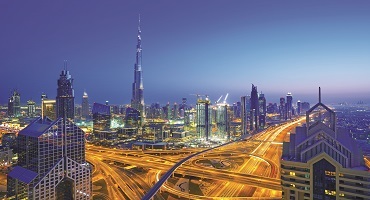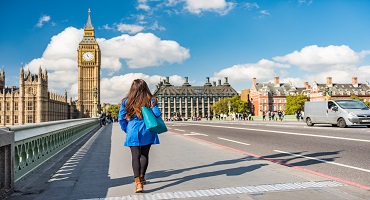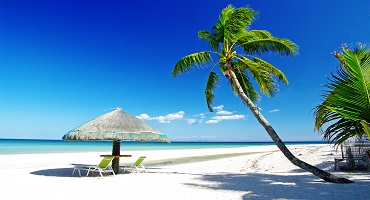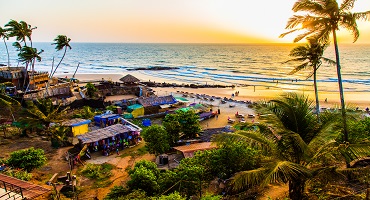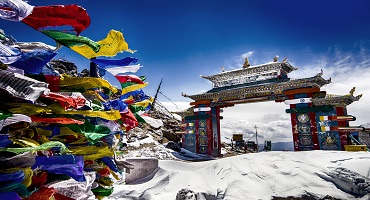If there’s one country that has it all, it is South Africa. The best time to visit South Africa is from May to September. Winter mornings and nights are cold. May and September are wonderful because it is less cold and, especially in September, the wildlife viewing is excellent. South Africa makes a year-round destination. Occupying the tip of the continent, this spectacular nation possesses a rich diversity and balance of urban splendour and wholesome nature, adrenaline rushes and tranquil moments, luxurious escapades and bargain experiences.
The country is blessed with an ever-changing landscape across its 9 provinces, reflected in its varied climatic zones. The Western and Eastern Cape follow the spectacular coastline, Northern Cape bleeds into the semi-arid Kalahari Desert, the ocean meets the mountains in KwaZulu Natal, while the North-West and its surrounding regions take you into the wild. Still, the country remains predominantly sunny, with a warm summer, mild winter and quick transitional spring and autumn seasons. Whether you’re looking for beaches, wildlife, culture, cities or mountains, this guide on the best time to visit South Africa lets you plan the perfect trip, with a look at the annual weather and experiences from across the country.
Peak Season - South Africa welcomes most of its visitors during the summer months, from November to March, given its location in the southern hemisphere. This is the season when beaches are most packed, and the cities are most alive.
Shoulder Season - Spring and autumn are the two shoulder seasons for tourism in South Africa, during which plenty of tourists still flock its shores and parks. In fact, many prefer these months between March to May and September to November.
Low Season - Winters are generally considered the low tourist season, between May to September, although it is the ideal weather for certain regions, and so remains an active season for tourists to visit.
| Travel Season |
Min / Max Temperature |
Season |
| Summer |
21 - 32 °C |
Warm, Sunny, Bright |
| Autumn |
12 - 30 °C |
Mild, Pleasant, Bright |
| Winter |
8 - 25 °C |
Windy, Chilly, Bright |
| Spring |
16 - 29 °C |
Mild, Pleasant, Bright |
Disclaimer — These seasons, temperatures and climatic conditions are estimates and may vary.
South Africa in Summer (November to February):
Temperature - Summers in South Africa bring dry or wet weather, hot or humid temperatures, depending on where you are. Generally speaking, the temperatures stay within the comfortable 25-27 °C range.
Weather - While the coasts are hot and sunny, the regions up north can witness frequent thunderstorms. Weather in the Western and Eastern Cape can be best described as ocean bliss (almost Mediterranean like). While Kruger and KwaZulu Natal see the bush transform into lush greenery, with rainfall and sunshine taking turns to bless the earth in the same day.
Significance - This is peak season for a reason! Spectacular Cape Town, the picturesque Winelands, the enchanting Garden Route, birding and birthing season in Kruger National Park — South African summers offer the perfect blend of culture, pleasure, wildlife and adventure. From beach-only vacations to self-drive getaways, romantic escapades to family safari days, this is a season that lets you fulfil any dream holiday in the sparkling rainbow nation.
Things to know before the visit - Whale watching tours continue till November, so be sure to book yourself a seat if you are visiting during this time. January is a great time to check out the Battlefields of Natal, as it is the anniversary of two significant battles. Festivals such as Up The Creek and We Love Summer, are highlight events of the season that make for great experiences.
Tips - Local holidays in December see South Africa at its busiest, with tourism also at its peak. Any summer tour must be booked in advance to catch the most popular activities and attractions. This is a generally hot and dry season so pack light clothes that will keep you cool. For the wildlife regions, some rain protection is must.
South Africa in Autumn (March to May):
Temperature - The heat of the summer makes way for autumnal cool, making daytime temperatures a very enjoyable 20-23 °C.
Weather - The weather stays warm across most of South Africa, and the rain in the north begins to subside. Periods of wind add a cooling touch to the air, which is crisp and clear. The rivers and lakes of the bush are filled to the brim, while the coasts continue to play host to sun chasers.
Significance - The short transition from summer to winter offers travellers two months of great weather and even better activities, without the rush of peak season. There’s no better time to combine a visit to different regions — Cape Town and the Garden Route is much more relaxed and still idyllically sunny, the Winelands are in full harvest season, wildlife spotting is on the rise at national parks like Kruger and Madikwe, while the spectacular Kalahari is at its greenest, offering fine views of the Savannah.
Things to know before the visit - South Africa’s incredible wildlife experiences truly come alive in the autumn. But it’s not just the perfect conditions for safari rides that one can enjoy. It is also one of the best times to go hiking around the Drakensberg Mountain, attend the once-in-a-lifetime AfrikaBurn Festival in Tankwa Karoo National Park, and relax at the Cape Winelands Harvest Festivals around Stellenbosch and Franschhoek.
Tips - If you plan to attend any of the festivals or events, do book your tickets in advance. Look for deals on stay and travel in and around Cape Town, as the rush of peak season reduces. Pack a jacket, as the bright days can quickly turn to windy or chilly nights.
South Africa in Winter (May to September):
Temperature - Cool winters take over South Africa between the months of May and September, though the sun is never too far away from showing its face. Average day temperatures sit between 10-15°C.
Weather - Unlike other winter holidays you might have gone on, the weather here remains pleasant with chilly spells and plenty of sunlight to bask in. The rains have subsided, except for an odd shower here and there — never enough to dampen plans.
Significance - One hesitates to call this a low season of tourism in South Africa, considering how spectacular the conditions are for a host of wildlife experiences, from big game spotting at Kruger and Phinda, to whale watching off the coast of Hermanus. The famous Drakensberg Mountain and Elephant Coast are also great spots for a winter visit, with milder climate and a thrilling list of activities to stay engaged.
Things to know before the visit - With the bush drying up as the season progresses, animals flock to the watering holes, making them easy to spot. That’s one of the main reasons why tourists love a winter tour of South Africa. Apart from the safaris, the wildflowers of Kirstenbosch Botanical Gardens and events such as the J-Bay Open Surf Competition are big attractions.
Tips - Pack comfortable daywear as well as a few layers to keep yourself warm when temperatures drop. Since this is the lowest tourist season, book early for great deals on travel and accommodation.
South Africa in Spring (September to November):
Temperature - Expect pleasant springtime temperatures if you are visiting between September and November, at an average of around 14-16°C.
Weather - Spring sees some cold days and others quite warm, especially as the season progresses. However, this is picture-perfect weather for both indoor and outdoor activities, across the vastly different regions of the country.
Significance - There are countless reasons to plan a spring visit to South Africa, including witnessing the famed Flowers of Namaqualand, escaping into the blossoming desert around the Cederberg Mountains, chilling out Cape Winelands, going whale watching in Hermanus. The only drawback is that the increasing heat around the wildlife regions of Kruger and beyond, tend to put off visitors. However, if you can bear the weather, the chances of sightings are high.
Things to know before the visit - Spring sees the start of festival season, with attractions such as Rockin’ the Daisies music and lifestyle fest just beyond Cape Town, Durban International Blues Festival, Hermanus Whale Festival and the Street Food Festival in Johannesburg and Cape Town. These are great experiences to add memorable moments to your tour.
Tips - South Africa can actually get quite packed in the months of spring, so early bookings are advised. Do carry some warm layers, just in case you chance upon a cold day.
So, you see, South Africa is really a potpourri of amazing places to see and things to do, all throughout the year. Now that you know what each season brings, picking one out of the many amazing Thomas Cook packages, is all the more easy. What are you waiting for?

